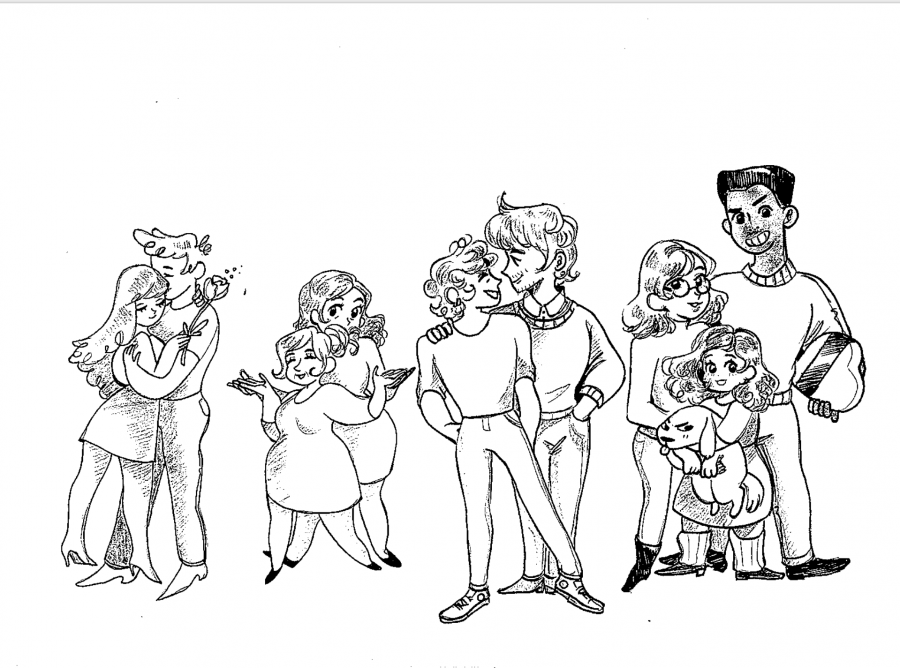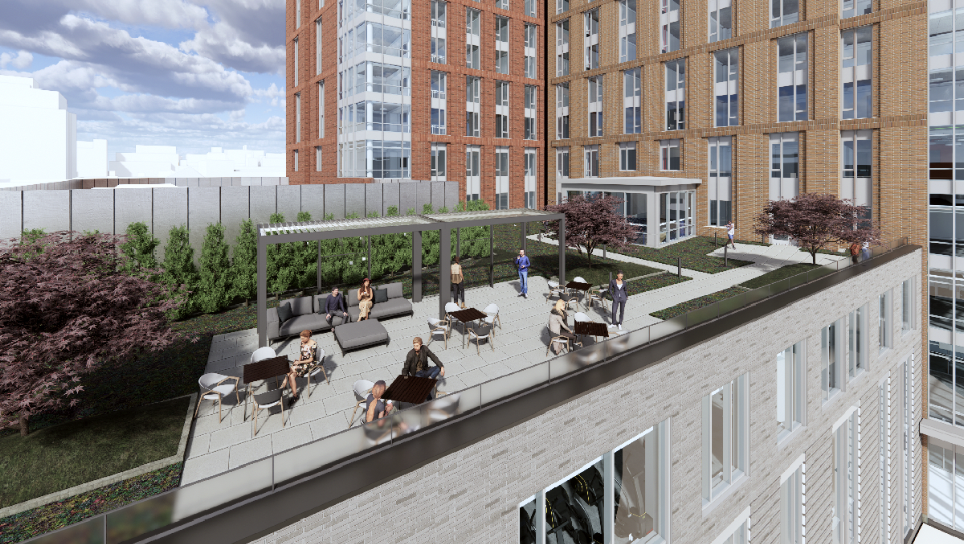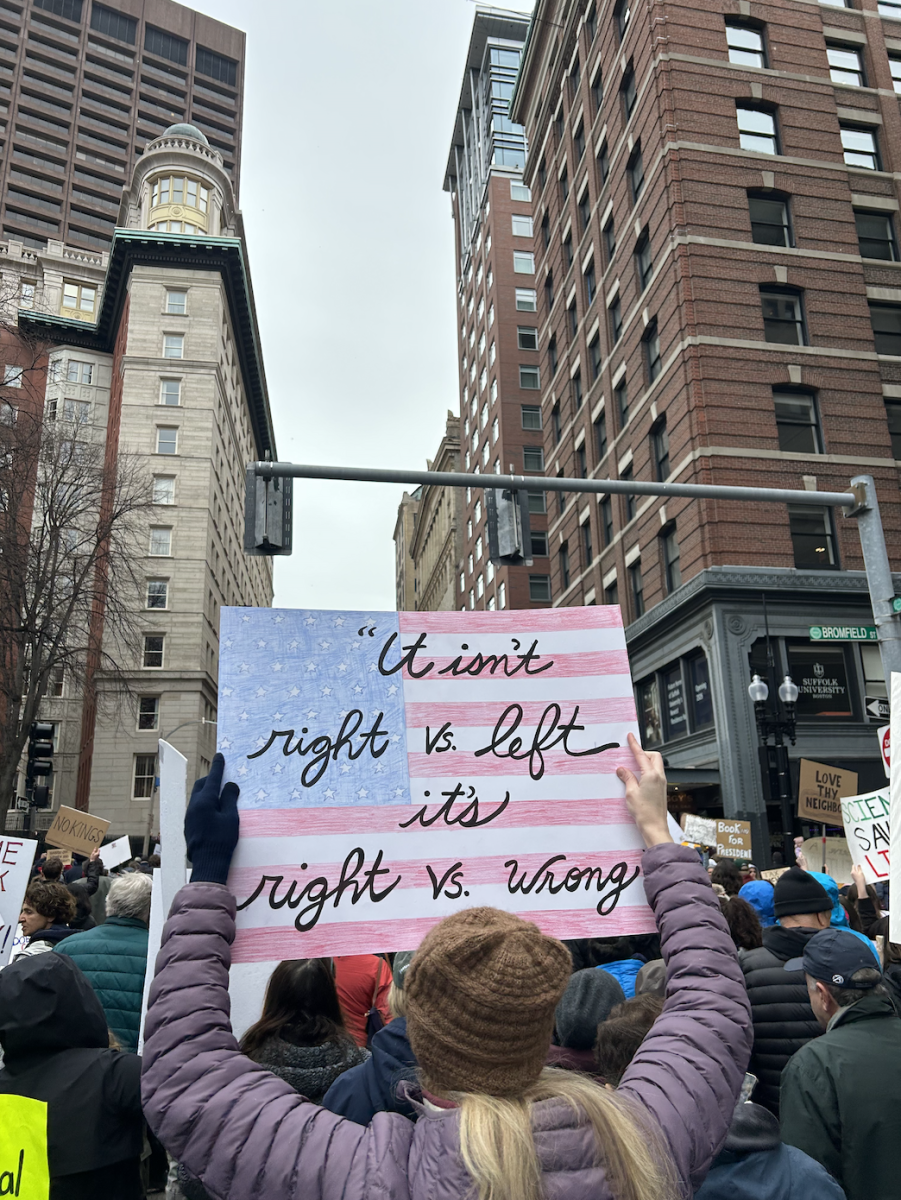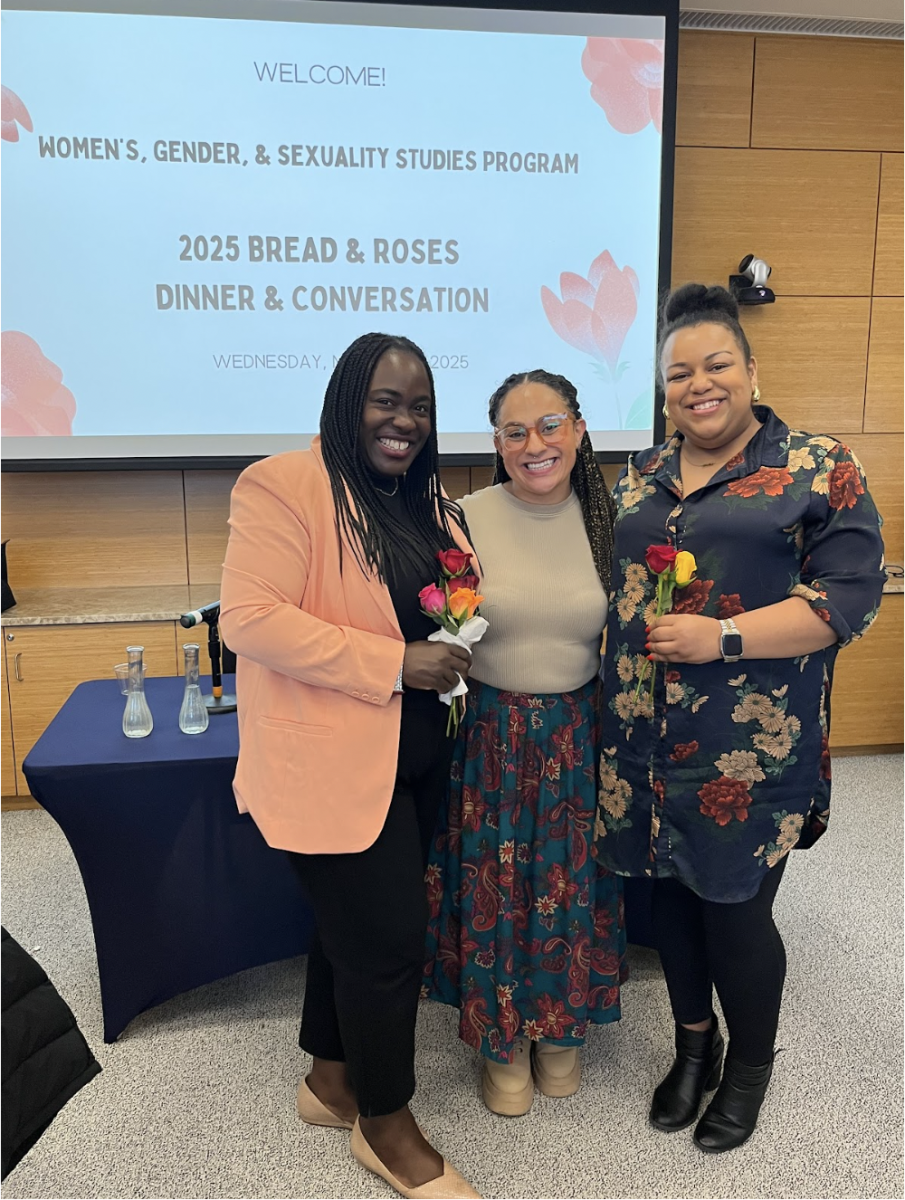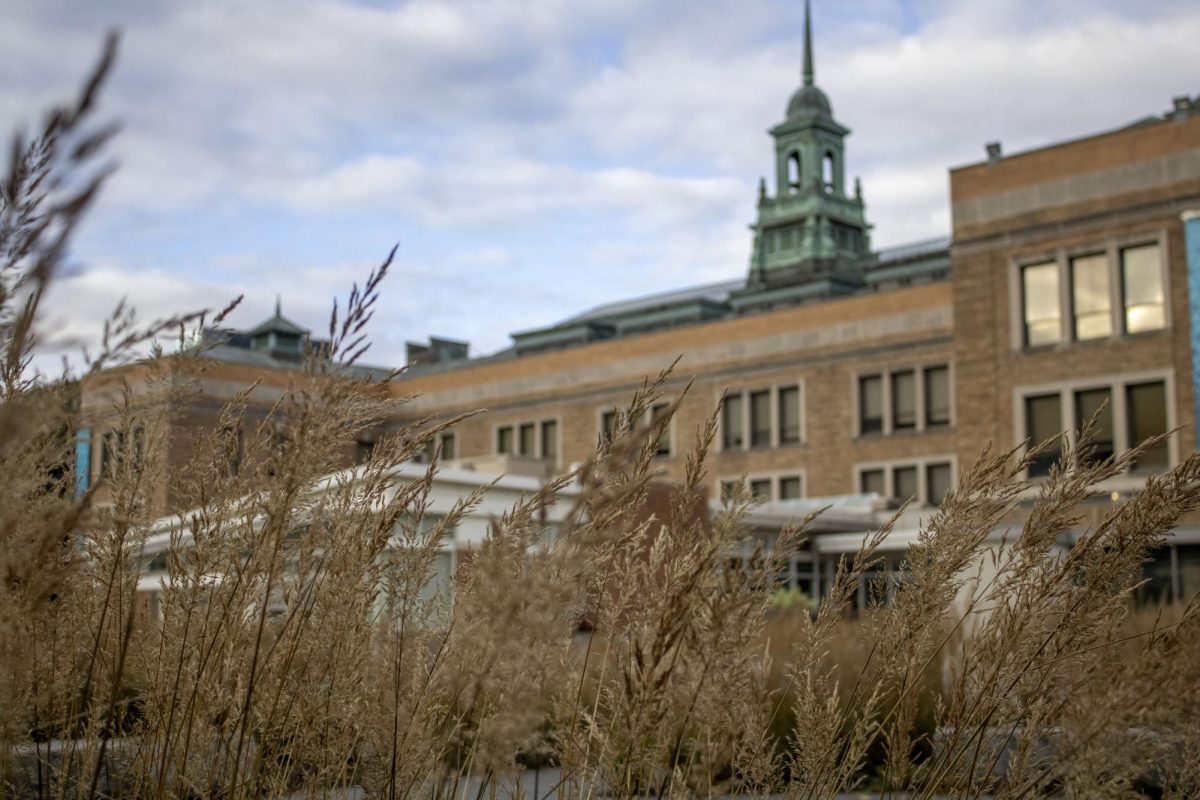By Haley Costen
Staff Writer
Women’s Centered College Week (WCCW) kicked off on Monday with a student-led panel on identifying as transgender or non-binary at a women’s-centered college.
The panel, “Gender Queeries: Identifying as Non-Binary at a Women’s Centered College,” consisted of students who do not identify with the gender they were assigned at birth or do not completely identify with one gender at all.
Junior Shane Giraldo conducted the discussion, with juniors Lyra Decastro, Dee Moore, Danny Boucher, and Jamie Robinson on the panel.
The group discussed gender identity, what it means to be non-binary or transgender at Simmons, and the commitment to providing resources to other non-binary and trans students.
The panelists had several viewpoints on what gender means to them, but agreed that they do not act as a reflection of their gender, but feel that their genders reflect their own personal identities.
“I want my gender to scare people,” Decastro said. They added that they were being facetious but added, “I want my gender to be monstrous, to be oppositional to what people think or want me to do.”
Boucher said when defining gender, he looks at himself beyond the constructs of what was given to him.
“In the last couple years I’ve strived for gender to not be something that defines me, but for me to define my own gender,” Boucher said.
Meanwhile Moore saw her gender as another way to describe herself, with it being subject to change as any other personality trait.
“Like any way to describe yourself, it’s dynamic and ever-changing. I don’t think my gender is ever going to be the same thing forever,” Moore said.
With the new admission policy that allows trans and other non-binary students to attend the college, the subject of being non-binary at Simmons was an essential part of the conversation.
While not all of the panelists sought out Simmons because it is a women-centered institution (Robinson joked that they attended Simmons only because the college wouldn’t stop sending them mail), most agreed that they had found a safe space at Simmons.

“It felt like home,” Boucher said about his accepted students visit to the college. “It felt like a good place to grow and to be me.”
“It just felt very calm and very much like home,” Robinson added.
There was also an emphasis on their interactions with the Simmons community and ways in which Simmons can better foster students who identify as non-binary or trans.
While most of the panelists agreed that many students are knowledgeable about gender identity and the use of correct pronouns, they had varied experiences at the faculty and staff level, with many concerns stemming from the amount of resources for non-binary students.
“My personal experience with faculty here has not been very great,” Robinson said, adding that while they felt some professors were respectful and aware, others continually made mistakes concerning Robinson’s pronouns.
“We have a lot of different departments and a lot of different professors who are on different points of the learning scale,” Boucher said. “Some of them need you to hold their hand, while others are way ahead, but some of them still quite don’t understand. I think there are a lot of areas for growth, but there are some areas where people are on point.”
Moore found that while the college is progressive, her experiences with students and staff have ranged from completely invalidating to comforting.
While the panelists suggested resources to students like Fenway Health, and the Massachusetts Transgender Political Coalition (MTPC), they primarily recommended the Sexuality Women and Gender (SWAG) center and fellow students as on-campus resources.
“I think the administration is working on it, but the actual level of commitment is unknown at this time,” Moore said.
“I think that [the school] is committed, but just doesn’t know how to show it,” Decastro said, adding that they feel it might be a budget issue for the college.
“We have a great new policy, but unfortunately the structure of a college doesn’t change overnight,” Boucher said.
The panel ended with a Q&A session that allowed for non-binary students to share their own concerns and for students to ask questions as allies.












